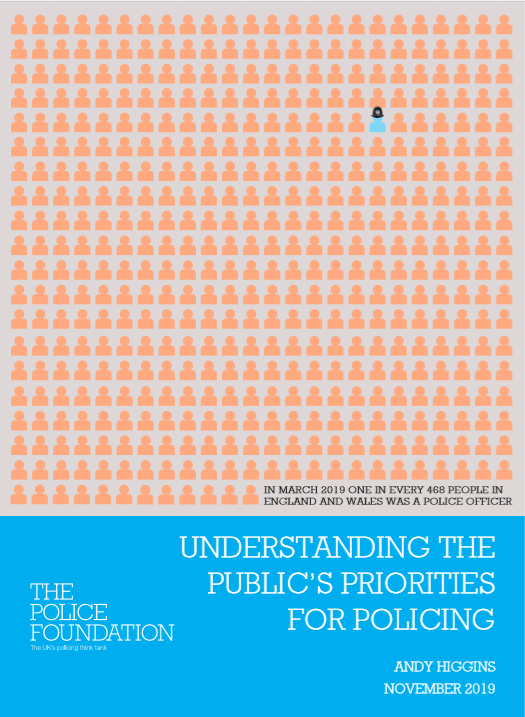Public approval sits at the heart of the Peelian policing model, but the police service is undergoing fundamental change and it is not clear whether the public understands what is going on, whether they agree with the prioritisation decisions being made, or with the value frameworks that underpin them.
In 2019 the Police Foundation, supported by a number of Police and Crime Commissioners, undertook research to develop a deeper understanding of public’s expectations of the police and their priorities; offering insights at both local and national levels.
The project moved beyond standard opinion surveys that ask people what they think the police should prioritise, without providing information about the realities of modern policing. Instead we brought together focus groups of local residents to discuss policing in their area, introduced information about the breadth and intensity of police demand and assessed the extent to which, once they understood these competing issues more fully, their views on priorities changed.
We considered the following questions:
- What do the public want and expect from the in 2019 and beyond? What are their priorities and what trade-offs are they prepared to make?
- How and on what basis does this vary, including demographically and geographically?
- To what extent do the public understand the role of, and the demand on, modern policing? Do they understand and agree with current trends and directions in police priorities and practices?
- Would the public agree with and support these shifts in approach and activity if they knew and were engaged more?
An appendix pack supporting this report is available here
